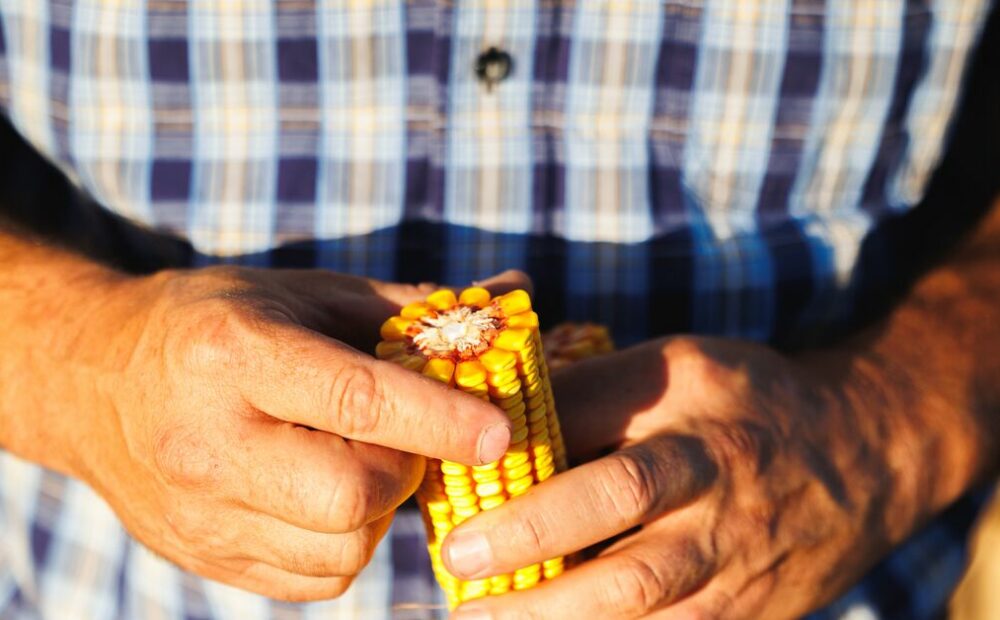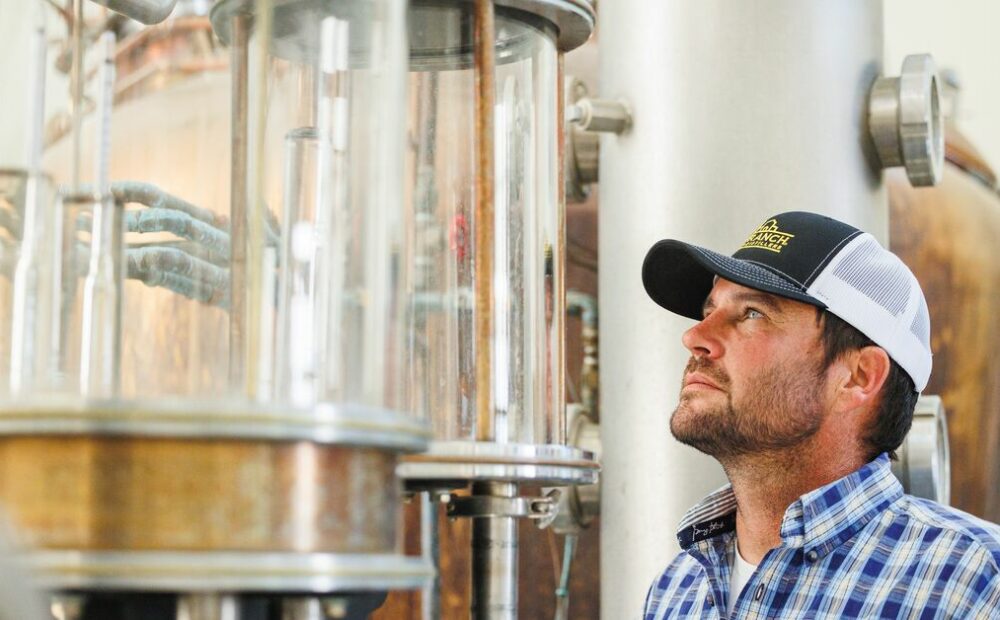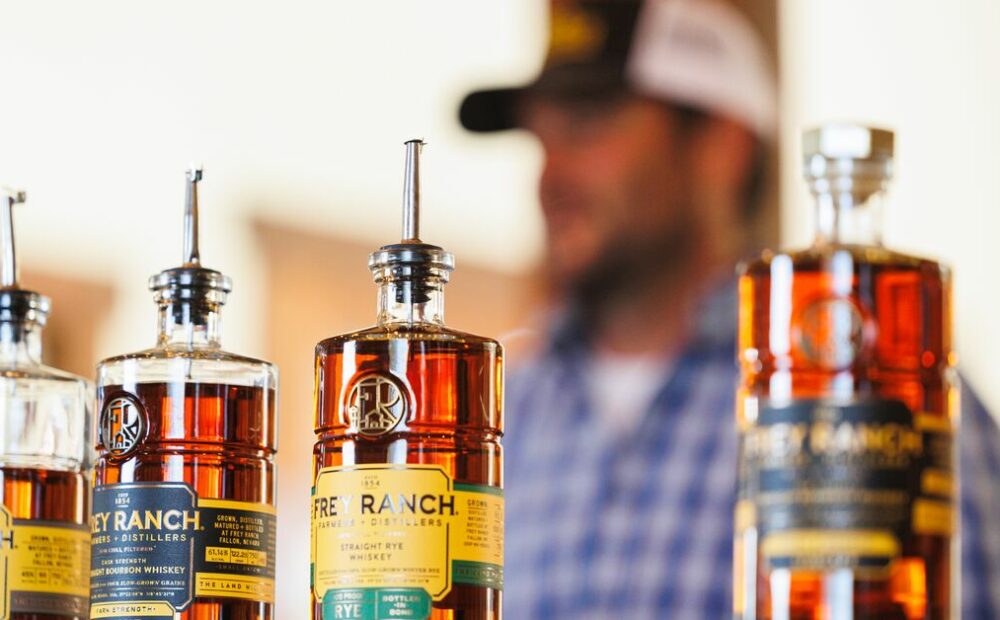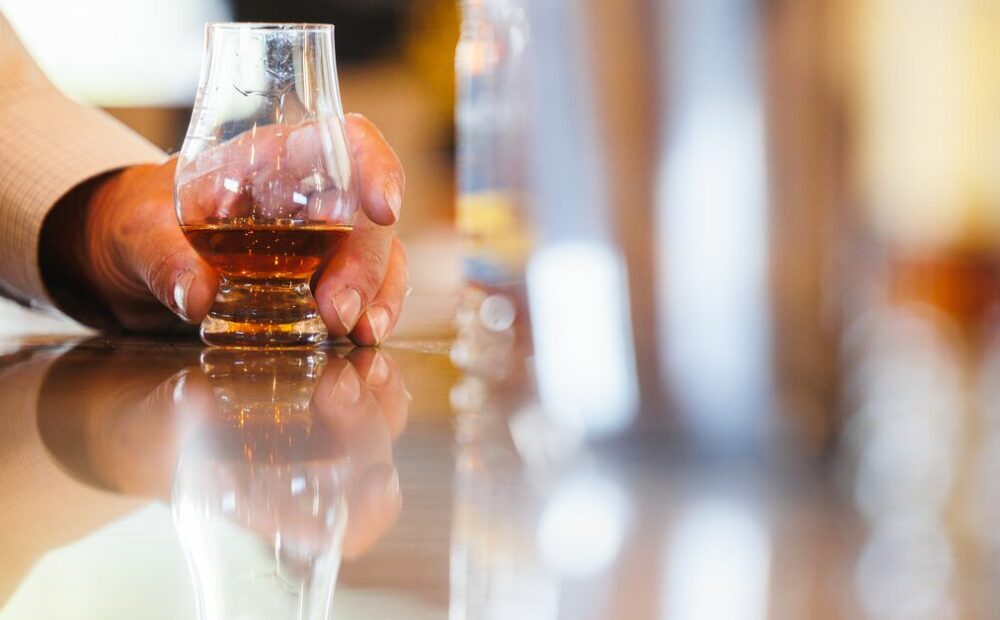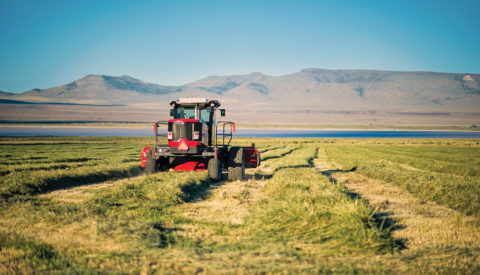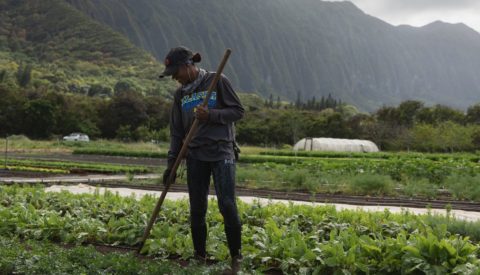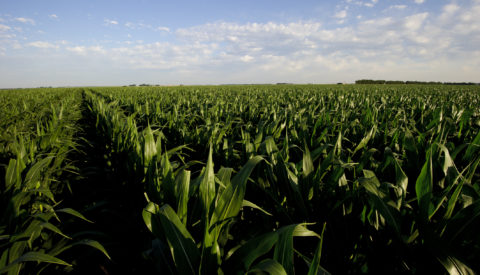Many wine drinkers take pride in knowing what goes into their favorite bottles, where the grapes were grown and how they were processed. For whiskey aficionados, the details are often shrouded in mystery, a carryover from the Prohibition era when smugglers and rum runners moved alcohol from secret distilleries to the drinking public.
A century later, Colby and Ashley Frey are shining new light and changing the public’s understanding of whiskey at their farm and distillery in Fallon, Nevada. Frey Ranch is a farm-to-bottle whiskey distillery, growing all the wheat, barley, rye, and corn for each bottle on 1,500 acres.
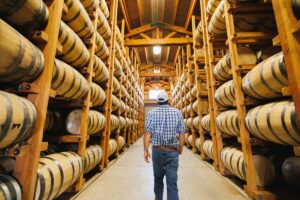
Colby said his childhood dream of farming met an adult taste for whiskey and, with the help of his wife Ashley, the idea for Frey Ranch was born.
“My wife Ashley and I were looking for ways to really showcase the crops that we’re growing,” he said. “And we thought, ‘What better way to do that than to make it into whiskey?’ We grow 100% of the grains that are in all our whiskeys right here on the farm.”
The concept of estate-grown whiskey may be new, but the Frey family’s roots in Nevada agriculture date back to 1854 when Charles Frey built one of the region’s first homesteads. The family has ranched and farmed wheat, corn and barley, and later grew wine grapes, before Colby and Ashley began building a whiskey estate in 2006.
“If you think of an estate distillery, we have total control over the entire process,” said Colby. “In the wine world, it’s very common. But in distilling and whiskey, it’s very rare.”
“You know, [in wine] everybody’s talking about the grapes, the terroir and everything else. Nobody does that in the whiskey world. That’s what sets us apart and really elevates us in the whiskey world.”
Craft whiskey starts on the farm
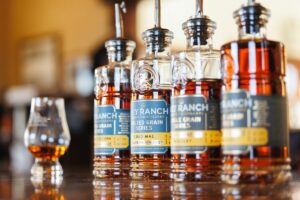
Making an exceptional bottle of whiskey takes more than just growing quality grains. Frey Ranch has facilities for every step of the whiskey-making process: malting, milling, mashing, distilling, maturing, and bottling. Led by master distiller Russell Wedlake, Frey Ranch produces bourbon, rye, single-barrel and “farm-strength” uncut whiskey.
Much like in the wine business, launching a whiskey label is an investment that takes long-range planning. Each bottle will be aged in oak barrels for two to four (or more) years, before it can be sold and enjoyed with the full-bodied flavor that comes with aging.
“We have five to six years’ worth of inventory sitting in barrels, and it’s a long process,” said Colby. “Once you get the snowball rolling, it will really be worth it. And it’s already showing that it’s a great investment, and we’re happy with where we’re at now.”
Frey Ranch sells both bourbon and rye whiskey, distinct varieties that have different recipes and aging requirements. Straight bourbon must be aged in new oak barrels for at least two years, according to rules set back in the early 1900s. The barrels must be made from American oak that has been charred, lending bourbon its amber color and distinct flavor.
“As a farmer, it’s kind of our dream to do something with the crops that we grow, not just sell them on the open market and be done with it,” said Colby. “For me to be able to make [the grains] into whiskey is kind of a dream come true.”
Investing in farm-to-glass whiskey
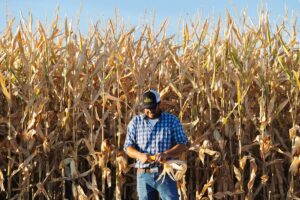
What Colby and Ashley are building at Frey Ranch is both a successful enterprise during their time managing the ranch, and a legacy business that their children may carry into the future. Colby said he often thinks about his four previous generations of farmers, hoping to see the ranch stay in the family for generations to come.
“I’m hoping that the distillery will make it worthwhile for my kids to not only want to take over the farm, but for it to be financially smart to take over and continue on the legacy,” he said.
Over the years, Colby and Ashley turned to a trusted financial partner to launch and then grow the business. Wade Hofheins, chattel evaluator at American AgCredit, said he has enjoyed working with the Frey family since 2009 to secure financing for new facilities and equipment on the ranch.
“We have been participating with [Colby] to grow this distillery to the amazing business that it is today,” said Wade. “Personally, it’s been a great source of pride because I got to be involved from the ground up. We’ve had the opportunity to provide financing to achieve the goals that Colby has been trying to accomplish over the years.”
On Saturday afternoons, Frey Ranch is open to the public for complimentary tours and whiskey tastings. Colby said he loves to show whiskey fans around the farm and distillery, giving them a taste of what Frey Ranch is all about.
“Taking a seed, growing a crop and then taking that crop and creating a product that you can share with people is really fulfilling,” said Colby. “And it’s introduced me to people around the world who appreciate whiskey. I’ve got the best job in the world.”

